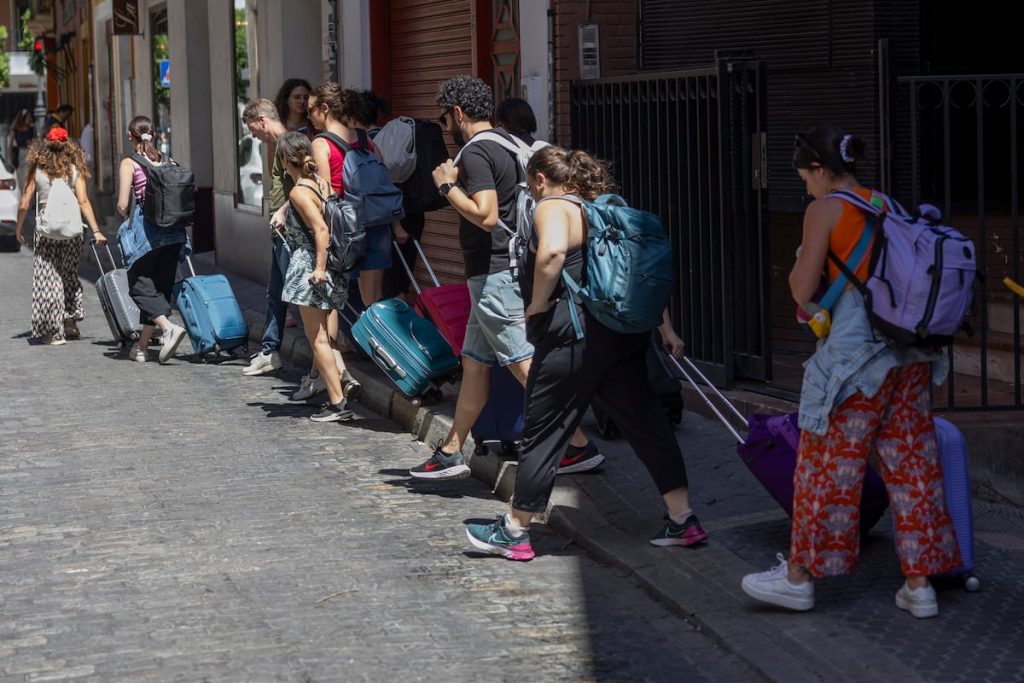The City Council of Seville has cut off water six times in the past year to irregular tourist apartments in the historic center, following repeated violations of the law. This strong measure has resulted in the closure of the apartments, which some owners have tried unsuccessfully to reverse. Three owners of the six apartments have appealed the water cutoff in court, but the justice has supported the closure finding the resolution proportionate, motivated by the complaints of neighbors fed up with the noise and hustle and bustle of tourists. The City Council of the Andalusian capital intends to increase its tourist police force to impose a tough stance and reverse the red carpet given to tourist apartments over the last decade, as they increase parallel to the rise of hotels inundating the city.
The turistification of Seville, with an abundance of visitors concentrated in the old town and Triana, sometimes leads to turismophobia, as happened last Tuesday in Santa Cruz, the neighborhood with the most tourist apartments in Spain, where a resident threw a bucket of water at a group of British tourists who had arrived on a cruise to Cadiz. The City Council of Seville wants to address the problem as there are 5,000 illegal apartments in the city, in addition to the 10,000 registered ones. This means that one in every three apartments is illegal, according to the Council, which aims to increase inspections to have a deterrent effect in the coming years, as at the current rate the Local Police force would take a decade to review them all.
Seville has seen an increase in the registration of new tourist apartments since the introduction of the Law of Impulse for the Sustainability of the Territory of Andalusia (LISTA) in January. However, in Sevilla, the starting date of activity for apartments in the registry must be prior to July 7, 2022 to survive. Despite the caution of the Andalusian City Council, this summer the measure of cutting off water to non-compliant apartment owners has come to light. Despite Seville’s stance on the issue, most Spanish cities do not view the measure favorably. Madrid, Barcelona, Valencia, Alicante, and Santiago de Compostela do not consider cutting off water to irregular apartments. Cádiz proposes charging an extra water fee and Málaga suggests a new tourist tax to increase social services and help vulnerable families affected by rising rental prices.
The Police Turistica unit in Seville has been cracking down on illegal tourist apartments in the city, following a surge in complaints during the pandemic when young people were renting apartments to host endless parties. The complaints led to noise violations, and in 2022, property owners had to change the land use from residential to tertiary for accommodation, a measure reinforced by the Junta in January. The constant influx of tourists has been a challenge for the city to manage, as the number of registered and illegal tourist apartments continues to rise. The measures taken by the Seville City Council are aimed at curbing the negative impacts of mass tourism on local residents while still allowing for a sustainable tourism industry in the city.


